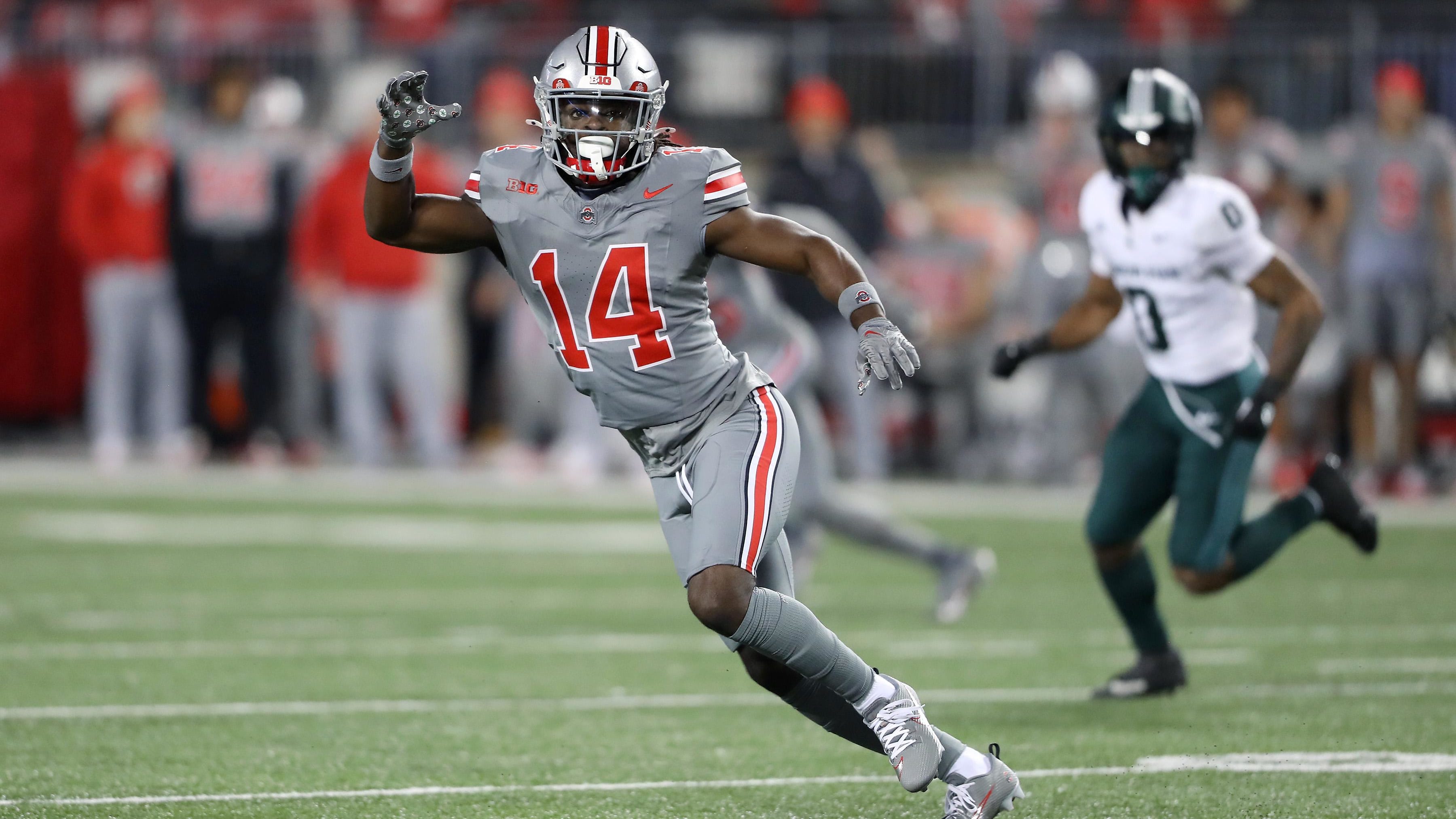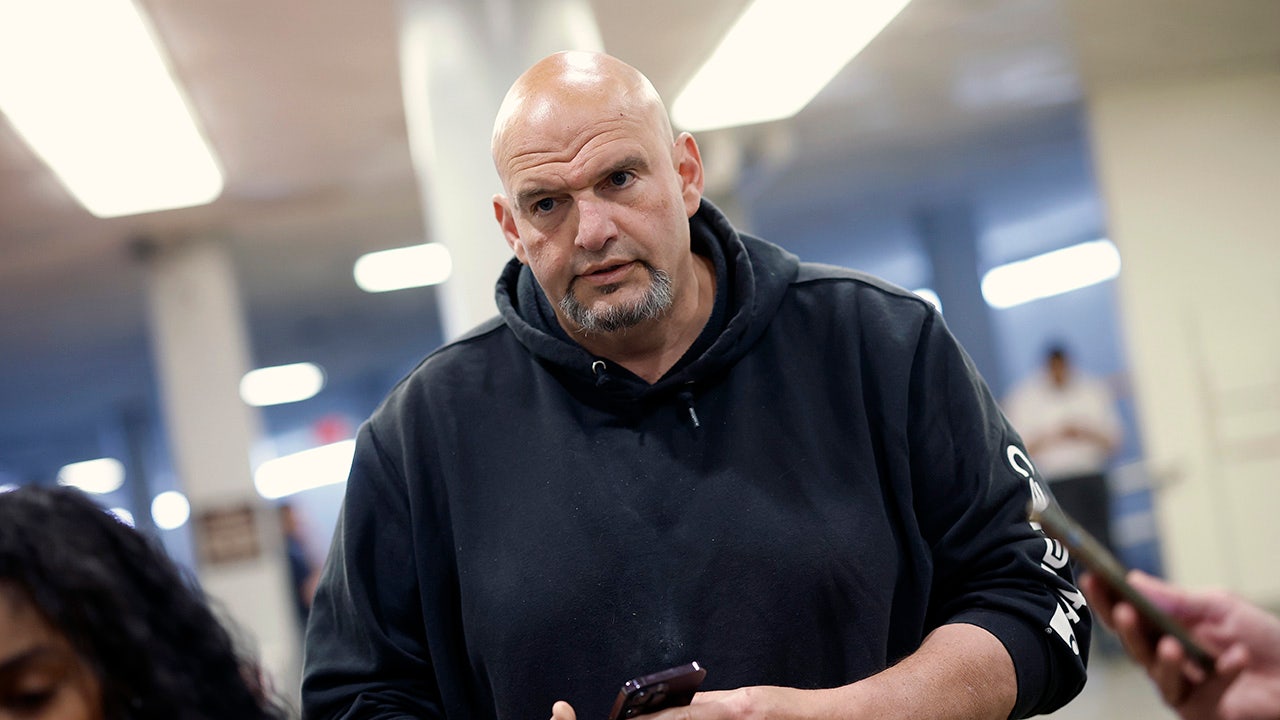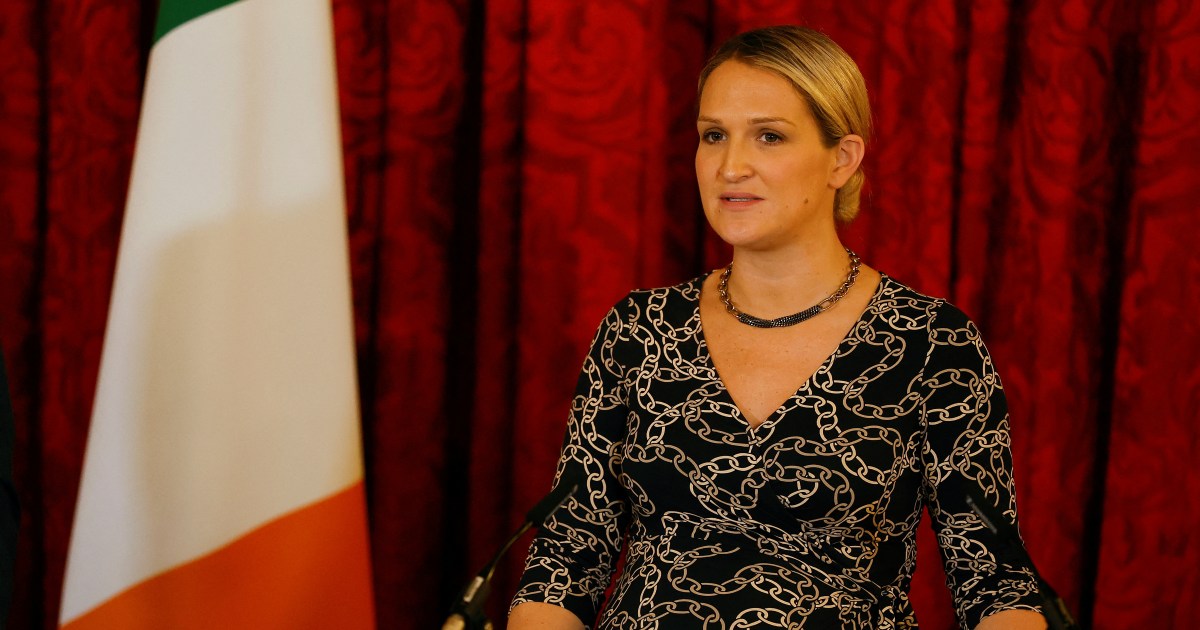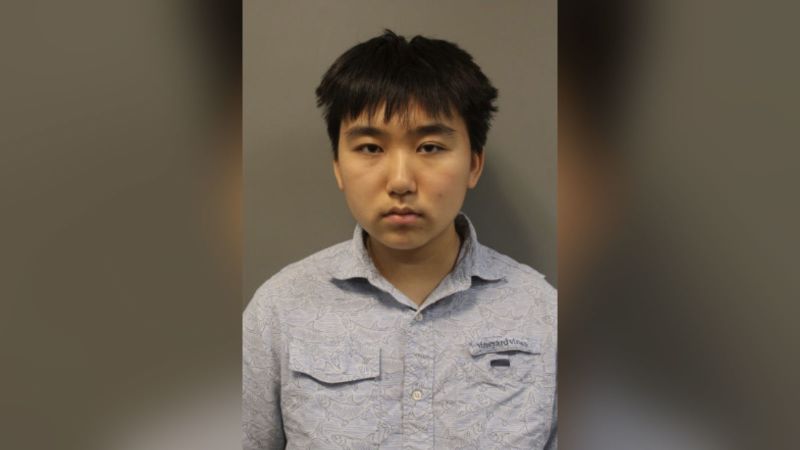Business
$600, free video game: How EA Sports got players to opt in to ‘College Football 25’
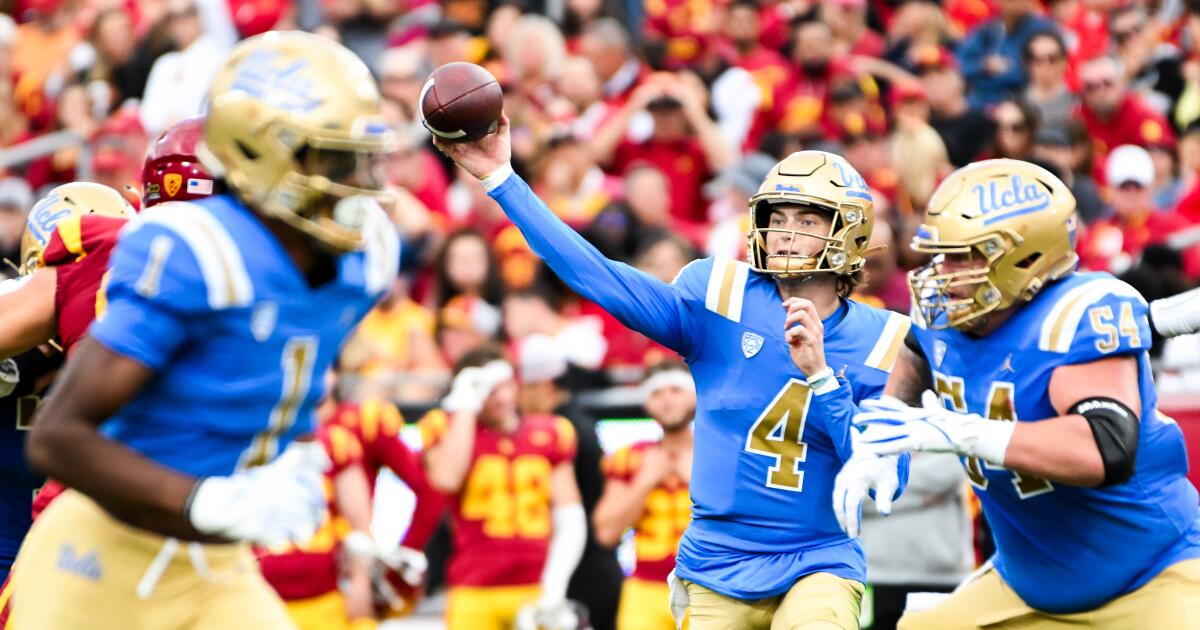
Fifteen years ago, former Nebraska and Arizona State quarterback Sam Keller filed a class-action lawsuit that in 2013 resulted in Electronic Arts Sports mothballing its popular “College Football” video game. Why? The game featured players that did not have real-life names, but resembled every player on every roster in almost every other way.
EA settled with Keller, et al., for $40 million, and the NCAA chipped in another $20 million. Sounds like a lot but payments to each player ranged from about $1,500 to $15,000.
Keller, for his part, was flogged in the public square of social media for “ruining the video game for us.”
“People looked at the situation and thought I’m going after the game because I couldn’t make it as an NFL player and needed to make a quick buck,” Keller told the Arizona Republic in 2019 when college players were granted the right to be paid for their name, image and likeness, or NIL.
“I understand all that, but that was never the intent. The case was more about what’s happening now [with NIL]. It was just the first of a lot of steps to change the norm to something that’s fair.”
Today college players are making significant sums through NIL deals. And what do you know, Redwood City-based EA Sports announced the return of the video game. “College Football 25” — the last version was CF 14 in 2013 — will be released this summer.
And, yes, players’ names will be used. Two weeks ago, EA offered $600 and a free copy of the game to any player who agreed to have their likeness featured, and more than 10,000 of the 11,390 FBS players already are on board, meaning EA will be paying players a total of $6 million to $7 million. Some players might make more than $600 by agreeing to promote the game.
Major awards won’t be included at the outset because EA couldn’t strike a deal with the National College Football Awards Assn. — a coalition of many of the sport’s individual awards — according to On3. Fans playing in Road to Glory or Dynasty modes no longer will be able to win real trophies that players are annually awarded — the Chuck Bednarik (top defensive player), Fred Biletnikoff (top receiver), Davey O’Brien (top quarterback), Doak Walker (top running back), Lou Groza (top placekicker), Jim Thorpe (top defensive back), Robert Maxwell (top player), John Outland (top interior lineman) and Ray Guy (top punter) awards.
The Heisman Trophy is operated independently by the Heisman Trust, and it is unclear whether it will be awarded in the game. The same is true for the Bronko Nagurski Trophy (top defensive player) and Dick Butkus Award (top linebacker).
Gamers will be blocked from manually adding players who decide not to accept the offer, the video game developer said. Among those who reportedly will opt out is Texas quarterback Arch Manning, the nephew of Peyton and Eli Manning. The quarterback Arch Manning played behind last season, Quinn Ewers, said on Instagram that he took the offer. So did fellow high-profile passers Dillon Gabriel of Oregon, Jalen Milroe of Alabama and Jaxson Dart of Mississippi.
Closer to home, UCLA quarterback Ethan Garbers and USC wide receiver and explosive kick returner Zachariah Branch opted in. So did most of their teammates.
“The response to the athlete opt-in opportunity for EA Sports College Football 25 has been phenomenal,” EA senior vice president Daryl Holt said in a statement. “We’re excited to welcome more athletes in the weeks ahead and to debut this first class of athletes in the game when it launches this summer.”
What else do we know about EA CF 25? All 85 FBS teams will be in the game with 2024 uniforms. The spate of recent conference realignments will be recognized. The new 12-team College Football Playoff is accommodated with the ability to customize. Every bowl game will be featured.
Also, the Dynasty and Road to Glory modes that 2013 gamers remember return with NIL components, and the game will run on the same engine as the Madden franchise.
Fifteen years ago, Keller’s lawsuit described EA’s attention to detail and revealed at least one way the video game company collected information on players to make the game as realistic as possible.
“EA attempts to match any unique, highly identifiable playing behaviors by sending detailed questionnaires to team equipment managers,” the lawsuit said. “Additionally, EA creates realistic virtual versions of actual stadiums; populates them with the virtual athletes, coaches, cheerleaders, and fans realistically rendered by EA’s graphic artists; and incorporates realistic sounds such as the crunch of the players’ pads and the roar of the crowd.
“EA’s game differs from reality in that EA omits the players’ names on their jerseys and assigns each player a home town that is different from the actual player’s home town.”
This time around, coaches were omitted, although Ole Miss coach Lane Kiffin told Andy Staples of On3 he would give permission to appear in the game without any compensation.
“The kids like to play it,” he said. “My brain thinks about what would help in recruiting? If you did pay me for that, I wouldn’t want it. I’d want you to put it into our NIL.”

Business
Angelina Jolie blames Brad Pitt’s NDA for scuttling winery sale, alleges abuse before plane altercation

Angelina Jolie’s legal team filed a motion Thursday to acquire Brad Pitt’s communications stemming from an “all-encompassing” nondisclosure agreement he wanted that purportedly tanked the sale of his ex-wife’s share of their Chateau Miraval winery to him.
The former Hollywood power couple’s protracted legal dispute over the winery — and its legacy for their six children — took another turn as Jolie’s team asked a judge to compel Pitt and his company, Mondo Bongo, to produce documents pertaining to his calling for a “more onerous NDA” in order to purchase Jolie’s share of the south-of-France winery.
The documents Jolie seeks, according to the Thursday filing in Los Angeles County Superior Court, are “highly relevant” and also likely to yield admissible evidence in the case, her team argued.
Her attorney, Paul Murphy, also accused the “Once Upon a Time … in Hollywood” Oscar winner of “unrelenting efforts to control and financially drain” Jolie, as well as “attempting to hide his history of abuse, control, and coverup.”
An attorney and a publicist for Pitt declined to comment Thursday on the new filing and allegations of prior abuse.
Pitt has accused Jolie and her company, Nouvel, of secretly selling her share of their winery and family home to “seize profits she had not earned and returns on an investment she did not make.” He claimed in a February 2022 lawsuit and subsequent amended complaints that his investment in the business “exceeded Jolie’s by nearly $50 million” and that Jolie had reneged on exclusive buyout negotiations they had agreed on in early 2021, when she originally said she wanted out of the business.
Pitt has been seeking a jury trial and the undoing of Jolie’s October 2021 sale to the Tenute del Mondo wine group, a subsidiary of the Stoli Group.
In October 2022, Jolie filed a cross-complaint that argued that the couple had no agreement regarding two-party consent to the sale of either party’s interest in the property. She also detailed allegations of abuse that prompted her to file for divorce from Pitt in 2016, ending their two-year marriage and much-talked-about 10-year romantic relationship. (The actors, although legally unmarried since 2019, have not yet finalized their drawn-out divorce.)
The “Inglourious Basterds” star has also complained that he can no longer enjoy his private residence in France, as it is now co-owned by strangers; Jolie contended Thursday that she and their children have not returned to the French estate since leaving it and boarding the fateful September 2016 flight that precipitated Jolie filing for divorce five days later.
In Thursday’s motion to compel, reviewed by The Times, attorneys for the “Girl, Interrupted” Oscar winner asked again for responses from Pitt to help them figure out his reason for pulling out of their implied agreement for him to buy Jolie’s stake in the winery. Pitt’s decision to pull out of the sale, her attorney said, “nearly broke” Jolie.
“If that sale had been completed, this lawsuit never would have happened. But at the last minute, Pitt ‘stepped back’ from his agreement to buy Jolie’s interest in Miraval, and the deal collapsed. The question at the heart of this case — and at the center of this motion — is why,” the motion said.
The answer, her attorney said, has to do with sealed documents Jolie submitted in the ex-couple’s separate but simultaneous custody dispute. The new filing referred to sealed March 2021 documents — titled “Testimony Regarding Domestic Violence” — that “apparently enraged Pitt” and led to him “stepping back” from the sale.
“When Jolie filed the evidence in the custody suit, she was careful to file it under seal so that no member of the public could see it. But Jolie’s sealed filing, which included emails, summaries of the family’s expected testimony, and other evidence, caused Pitt to fear that the information could eventually become public,” the document said.
Pitt then decided he could no longer rely on Jolie’s voluntary efforts to keep things private and demanded that she “contractually bind herself to that silence,” her filing said.
With that, her team indicated there was abuse of Jolie that predated the contentious 2016 private-plane flight. In referring to that sealed filing in the custody case — as well as another titled “Testimony of Minor Children” — her team argued that Pitt tried to force a more sweeping NDA on Jolie to conceal his alleged “personal misconduct, whether related to Miraval or not.”
Her team is seeking Pitt’s communications with the FBI, U.S. attorney’s office, the L.A. County Department of Children and Family Services and the Los Angeles Police Department regarding the private flight. She is also seeking information from DCFS about its investigation, drug and alcohol testing and a safety plan the agency purportedly required Pitt to undertake to address his conduct.
“While Pitt’s history of physical abuse of Jolie started well before the family’s September 2016 plane trip from France to Los Angeles, this flight marked the first time he turned his physical abuse on the children as well,” the new motion states.
According to an exhibit on a 2024 court declaration by Jolie attorney Murphy, an offer to turn over many of the communications requested by Jolie’s team was rejected last month by attorney Stella Chang, who told a Pitt attorney via email that his “proposal does not come anywhere close to providing the documents responsive to [the team’s requests], which Ms. Jolie needs to defend herself from Mr. Pitt’s frivolous allegations.”
Pitt was never charged in connection with the plane incident, either by the U.S. attorney’s office or the Department of Children and Family Services, which investigated the incident — and its allegation of child abuse — before the FBI got involved. The FBI decided in November 2016 to close its probe without filing any charges against the actor. People magazine reported that he was drunk during the incident, which “escalated more than it should have,” and asserted that “no one was physically harmed.”
Jolie never pressed charges, the filing said, “as she believed the best course was for Pitt to accept responsibility and help the family recover from the post-traumatic stress he caused.” It also alleged that Pitt refused to seek domestic violence counseling.
Pitt, in a 2017 GQ interview, admitted he had a drinking problem — saying, “I was boozing too much” — but said he was now sober. He said he was going to therapy after first going through two therapists who didn’t work out, and lamented his and Jolie’s marital woes being dragged out and misconstrued by the media with no “delicacy or insight.” Pitt has never argued that his behavior on the 2016 flight was acceptable.
His legal team said in a June 2023 court filing that while Jolie had backed out of the winery sale, purportedly over “restrictive language” requested in a mutual nondisclosure agreement, a year later she proposed an even broader NDA in their divorce case that would have required that “[o]ther than in court pleadings or testimony, neither party shall directly or through a party’s representatives make in a public forum any derogatory remark about the other party.”
The “Thelma & Louise” actor alleged in court documents that Jolie decided to sell her Miraval stake to the Stoli subsidiary after receiving an “adverse custody ruling” in their protracted divorce proceedings.
Pitt’s legal team last summer claimed that Jolie “vindictively” sold her stake in the winery behind his back and alleged that she “sought to inflict harm on Pitt,” subsequently revealing more details about the unraveling of the couple’s relationship. Jolie’s camp at the time insisted — and continues to do so in the new filing — that Pitt refused to complete a Miraval sale with Jolie “unless she agreed to being silenced” about his alleged abuse.
Now her team is claiming that Pitt attempted to cover up the alleged abuse by objecting to the children testifying on their custody preferences. The filing includes a May 2021 text message from Jolie to a friend (as an exhibit) relaying that she tried to sell the winery to Pitt per their agreement but that he was “really not being fair” and demanding “a lot of punishing restrictions.” The filing also outlined for the first time the language of the “more onerous NDA.”
Said restrictions, per the motion, were put forth in an “expansive” NDA that stated that the parties could not make any statements or take actions that would “disparage, defame, or compromise the goodwill, name, brand or reputation of Miraval Provence or any of its affiliated or direct and indirect shareholders,” including Jolie, Pitt, Pitt’s business partner and good friend Marc Perrin, and Familles Perrin SAS.
It also stated that the parties could not “commit any other action that could likely injure, hinder or interfere with the Business, business relationships or goodwill of Miraval Provence, its affiliates, or its direct and indirect shareholders.” Jolie refused to sign it, and “by June 3, 2022, the deal was dead,” the motion said.
Pitt’s NDA in the failed winery deal would have required, according to 2023 court documents filed by his legal team, that “[a]t no time for a legally binding period of four (4) years following the Closing Date, and, on a good faith basis, any period thereafter, shall the Parties (i) make any statements, or take any other actions whatsoever, to disparage, defame, or compromise the goodwill, name, brand or reputation of Miraval Provence or any of its affiliates or direct and indirect shareholders,” including Jolie, Perrin, Familles Perrin SAS and Pitt, who has been the celebrity face of the winery, so as not to hurt or hinder the business.
Jolie accused Pitt of gaslighting her and, according to the new documents, signed a power of attorney at that point authorizing her European lawyer, Laurent Schummer, to take over the sale process.
“Mr. Pitt refused to purchase Ms. Jolie’s interest when she would not be silenced by his NDA,” Jolie attorney Murphy, managing partner at the law firm Murphy Rosen LLP, said Thursday in a statement to The Times.
“By refusing to buy her interest but then suing her, Mr. Pitt put directly at issue why that NDA was so important to him and what he hoped it would bury: his abuse of Ms. Jolie and their family. After eight months of delays, this motion asks the Court to force Mr. Pitt to finally produce that evidence.”
A person close to Jolie who was not authorized to speak publicly about the case told The Times that Pitt “is drawing all this out of Angelina.”
“She does not want to be here, she does not want to be raising any of these facts, and she is doing it only because Pitt’s lawsuit against her is forcing her to defend herself. It’s incredibly sad and she just wishes he could move on and let her be,” the person said.
The person added that Jolie’s lawyers have emails, photos and testimony that was presented under seal in the custody case that would help her in this matter. However, the person said, if the case goes to trial, she “will be forced to use that evidence in the trial whether she wants to or not.”
Times assistant editor Christie D’Zurilla contributed to this report.
Business
Federal labor investigators say L.A. poultry plant used child labor and tried to cover it up
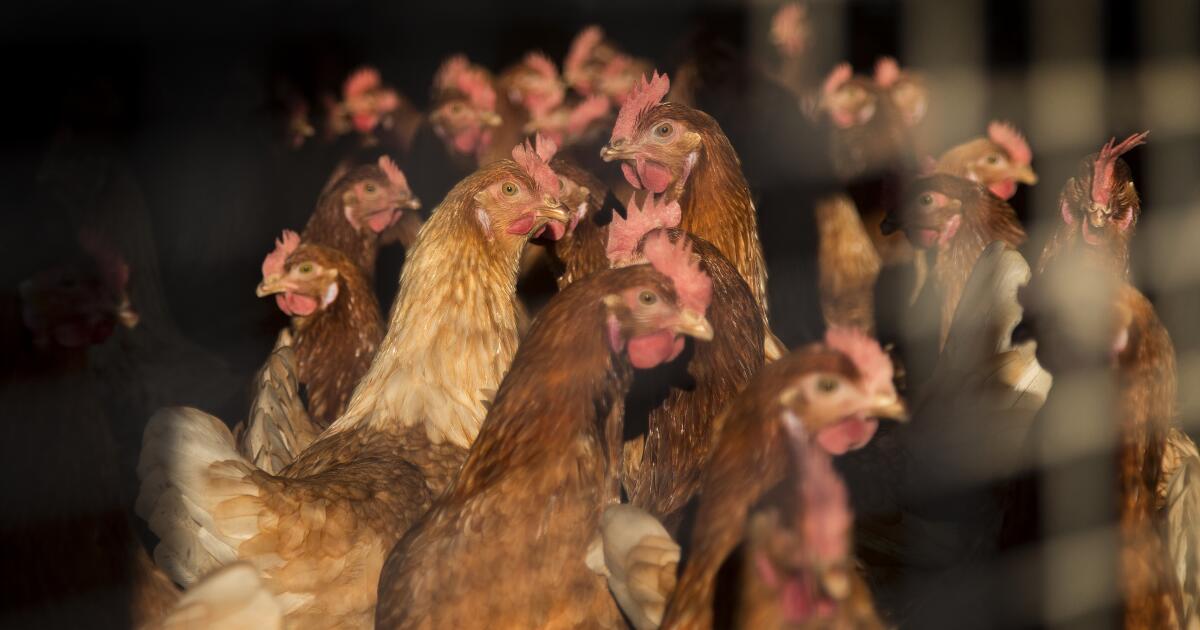
A federal judge issued a temporary restraining order on Monday to block a poultry processing plant in the city of Irwindale from using “oppressive” child labor.
The order came after investigators with the U.S. Department of Labor filed a lawsuit on Saturday alleging the poultry processor and its affiliated companies illegally employed children under the age of 18 to debone raw meat with sharp knives.
The department is seeking action forcing involved companies to forfeit money they made from selling products processed in facilities where minors were allegedly made to work in dangerous conditions.
The judge’s order involves three companies in the San Gabriel Valley — L & Y Food, Moon Poultry and JRC Culinary Group — that are all either owned, operated or managed by Fu Qian Chen Lu, who is also named in the lawsuit.
The Labor Department said in court documents that the companies continued to deliver and sell products even after agreeing to voluntarily refrain from shipping products following accusations of their use of child labor, and refused to provide information to investigators.
The companies hid 794 boxes of processed chicken and seven 1500-pound bins of chicken from investigators visiting the Irwindale facility, according to the court filings .
Federal officials and the poultry companies have presented dueling narratives of the child labor allegations.
Gregory W. Patterson, an attorney representing Chen Lu and other defendants named in the suit, accuses the Labor Department of planting an underage worker in the facility as part of its investigation, a claim the department has dismissed as “baseless.”
The crackdown by federal investigators comes as some of the country’s biggest consumer brands have come under broad scrutiny for child labor in their domestic supply chains amid revelations that children are working throughout American manufacturing and food production.
Investigators discovered children deboning poultry at the plant after visiting the facility in the city of Irwindale on Mar. 20 for a civil search warrant, the lawsuit said. Operators of the facility continued to process products, even after the Labor Department raised objections during its search warrant, in violation of federal laws prohibiting sale of products “tainted by child labor,” according to the lawsuit.
The “hot goods” provision of the Fair Labor Standards Act prohibits companies from selling products from locations flagged for child labor use in the prior 30 days.
U.S. District Judge Otis D. Wright II in his Monday decision issued a temporary restraining order requiring the businesses to stop using child labor, provide the Labor Department with information it is requesting related to its investigation, and refrain from shipping any poultry from facilities accused of employing child labor.
“In light of the immediacy of irreparable harm pending the Court’s review of this action, the Court finds a temporary restraining order warranted,” Wright wrote in his order on Monday.
Barring immediate action, he said, companies named in the lawsuit “will continue to employ oppressive child labor to the risk of minors’ life and limb; hot goods may enter the stream of commerce; and Defendants will continue to thwart Plaintiff’s investigation.”
Patterson, the attorney representing Chen Lu and other defendants, said in an emailed statement that the labor department had a 17-year-old “gain employment with Moon Poultry under false pretenses by presenting a fake government identification” and “directed this person to work in a hazardous area of the Moon Poultry facility in Irwindale.”
Patterson alleged that the Labor Department aimed to manufacture a child labor claim to “strengthen its negotiating hand” in an investigation about overtime wages that had not been paid to workers.
“The defense counsel’s allegations are false. The Labor Department has previously responded to the defense counsel on this issue, but he has nevertheless chosen to press his baseless claims,” said Marc Pilotin, regional solicitor for the Labor Department, in an emailed statement.
The Labor Department has investigated other poultry processing plants in California in recent months.
In December, federal investigators found grueling working conditions at two poultry plants in City of Industry and La Puente operated by Exclusive Poultry Inc. as well as other “front companies” owned by Tony Elvis Bran.
Children as young as 14 stood for long hours cutting and deboned poultry and operating heavy machinery, the labor department said. The workers came primarily from Indigenous communities in Guatemala.
The poultry processor, which supplies grocery stores including Ralphs and Aldi, was ordered to pay nearly $3.8 million in fines and back wages.
An investigation published in early February by the Fresno Bee detailed dangerous and sometimes deadly conditions for primarily Latino immigrant workers at Pitman Farms in the Central Valley, which produces the Mary’s Free Range Chicken brand.
Business
Money Talk with Liz Weston: Managing mortgage debt in retirement

Dear Liz: My husband and I are Gen Xers who are renting. We have enough cash from the sale of our last home to make a small down payment on another. If we moved to a more affordable community, we could manage the payments, but it would still be a stretch. That scenario would not have bothered me 10 years ago, but now I’m close to 50. Is it a good idea to take on a mortgage at this point? What is the best way to ensure I can afford to keep the roof over my head when I can no longer work full time?
Answer: Having a mortgage in retirement used to be uncommon, but that’s no longer the case. The Joint Center for Housing Studies of Harvard University found 41% of homeowners 65 and older had a mortgage in 2022, compared with 24% in 1989. Among homeowners 80 and over, the percentage with mortgages rose from 3% to 31%.
The amounts owed have skyrocketed as well. Median mortgage debt for those 65 and older rose more than 400%, from $21,000 to $110,000 (both figures are in 2022 dollars). Median mortgage debt for those 80 and over increased more than 750%, from $9,000 to $79,000.
Mortgage debt doesn’t have to be a crisis if you can afford the home and the payments don’t cause you to run through your retirement savings too quickly. In fact, some retirees are better off hanging on to their loans. It may not make sense to prepay a 3% mortgage when you can earn 5% on a certificate of deposit, for example. Paying off a mortgage early also could leave you “house rich and cash poor,” with not enough savings to deal with emergencies and later-life expenses.
But the key is affordability. A mortgage that’s a stretch now might become easier to afford if your income rises, which was almost a given when you were younger. Now, however, you’re approaching the “dangerous decade” of your 50s, when many people wind up losing their jobs and failing to ever regain their former pay, according to a study by ProPublica and the Urban Institute.
Renting has its risks as well, of course. You aren’t building equity and you typically have little control over rent increases, other than to move.
For help in sorting through your options, consider talking to a fee-only, fiduciary advisor. Among the most affordable options are accredited financial counselors and accredited financial coaches, who typically are well-versed in the money issues facing middle-class Americans. You can get referrals from the Assn. for Financial Counseling & Planning Education at www.afcpe.org.
Dear Liz: I’m a CPA and getting conflicting answers from the Social Security office about a case I’m working on. Both clients are 70 and they’re considering legal separation or divorce. She took Social Security at 62 and receives about $1,500 a month before deductions. He started Social Security at 70 and receives about $4,600. How would her Social Security change at his death or their divorce, if she doesn’t remarry?
Answer: Based on the amounts involved, both parties are receiving their own retirement benefits and those aren’t affected by divorce, said William Reichenstein, a principal at Social Security Solutions, a claiming strategy site. (If the wife were receiving spousal benefits, those would continue after divorce as long as the marriage lasted at least 10 years and she did not remarry.)
If the husband dies and they haven’t divorced, the wife would be entitled to survivor benefits equal to his full monthly benefit amount ($4,600, plus any future cost of living increases). If they divorce and the marriage lasted at least 10 years, she also would be entitled to his full amount. Remarriage wouldn’t affect her divorced survivor benefit since she’s over 60, Reichenstein said.
Liz Weston, Certified Financial Planner®, is a personal finance columnist for NerdWallet. Questions may be sent to her at 3940 Laurel Canyon, No. 238, Studio City, CA 91604, or by using the “Contact” form at asklizweston.com.
-

 Kentucky1 week ago
Kentucky1 week agoKentucky first lady visits Fort Knox schools in honor of Month of the Military Child
-
News1 week ago
Maryland high school student arrested after authorities discovered a 129-page document detailing school shooting plan, police say | CNN
-

 World1 week ago
World1 week agoIranian media says three drones downed after explosions heard in Isfahan
-

 World1 week ago
World1 week agoShipping firms plead for UN help amid escalating Middle East conflict
-
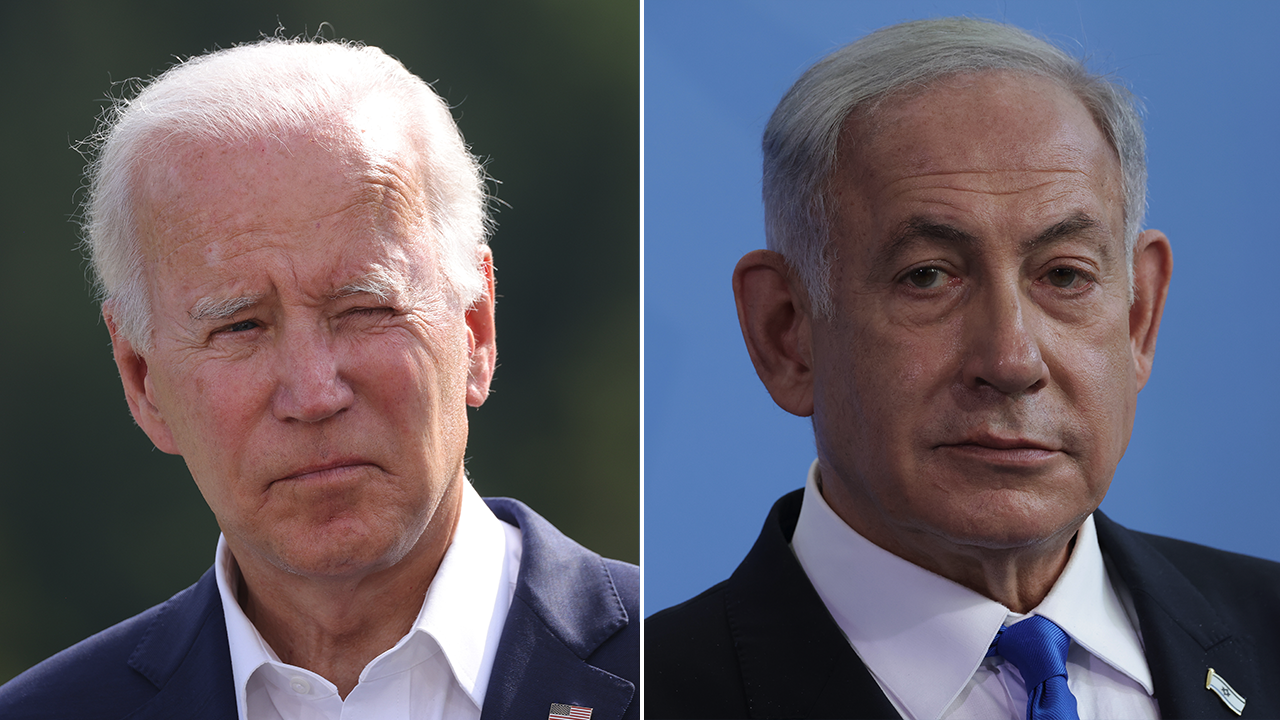
 Politics1 week ago
Politics1 week agoIsrael hits Iran with 'limited' strikes despite White House opposition
-

 Politics1 week ago
Politics1 week agoICE chief says this foreign adversary isn’t taking back its illegal immigrants
-

 News1 week ago
News1 week agoThe San Francisco Zoo will receive a pair of pandas from China
-

 Politics1 week ago
Politics1 week ago'Nothing more backwards' than US funding Ukraine border security but not our own, conservatives say





